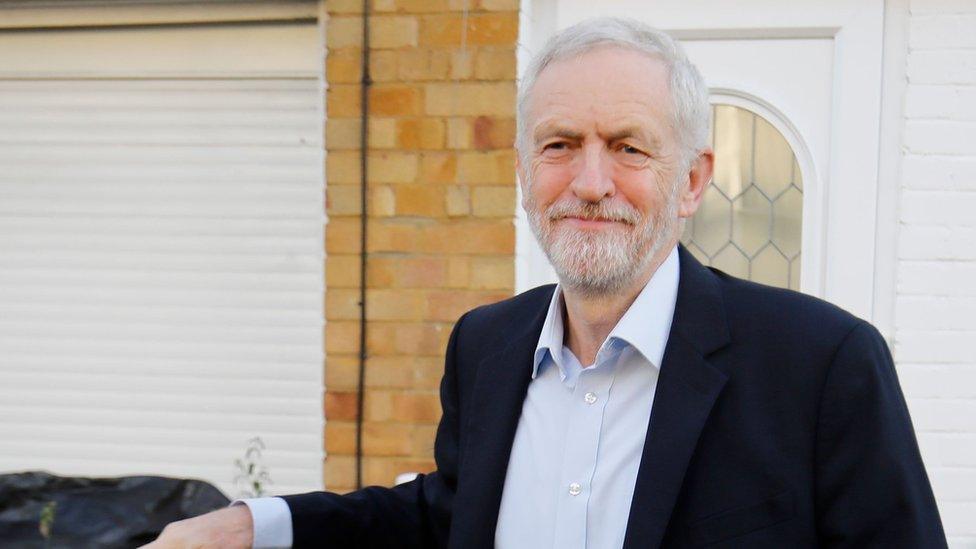Brexit: Numbers lesson for May and Corbyn
- Published

It wasn't the meaningful vote, but tonight's votes do have meaning themselves.
First off, Labour's alternative to the government's plan for Brexit was rejected by Parliament. That means, rapidly and firmly, backers of another referendum will push the party to support another public vote very quickly.
Jeremy Corbyn said in the aftermath: "We will back a public vote in order to prevent a damaging Tory Brexit or a disastrous no deal outcome."
But he went on to say: "We will also continue to push for the other available options to prevent those outcomes, including a close economic relationship based on our credible alternative plan or a general election."
It remains the case that while in much of the Labour Party there is a strong demand to argue and campaign for another referendum, in order to try to stay in the EU, the leader's office has significant doubts about that.
The "other available options" - whatever those may be - have not disappeared.
But it's likely that when a Labour backbench plan to force another vote emerges - for example, if a proposal from MPs Peter Kyle and Phil Wilson comes up for a vote - Jeremy Corbyn will come under huge pressure to swing behind it.
And one key member of the shadow cabinet tonight predicted that will be the way the party chooses to proceed.
Although the Shadow Chancellor implied the leadership itself could put the plan forward, John McDonnell said: "When the meaningful vote comes back, and we're told maybe that will be 12 March - there are rumours it could be next week - that's the time we'll have to put the amendment up."
Remember though, there are dozens of Labour MPs who just don't believe another referendum is the right thing to do.
What the other votes reveal
Tonight's votes reveal three other important things.
Firstly, there is a determination in Parliament to prevent the UK leaving the EU without a deal.
The Cooper amendment, which essentially formalised the options to delay Brexit laid out by the PM yesterday, was passed overwhelmingly.
Secondly though, there was a significant number of Tory MPs who abstained. That's a pretty obvious hint that if and when the Commons has the chance to vote to prevent a no-deal and slam the brakes on instead, there will be a very strong Tory resistance.
One Cabinet minister said earlier today there is "just no way" that extending the Brexit process would go through on Tory votes alone, even if the Commons as a whole makes that choice, as is likely.
Lastly, around 20 Tory MPs voted against the idea altogether - a reminder for the PM, in the unlikely event that she really needed it, that there is a core of Brexiteers who are likely to vote against her deal come hell or high water.
And, in theory, even if the deal is passed, they might be prepared beyond that point to withdraw support for the government in anger.
These votes were not the showdown that had been predicted. And it's impossible to say categorically how the results will shape the weeks ahead.
But for both party leaderships, there are lessons in how the numbers shook down.
- Published28 February 2019
- Published30 July 2019